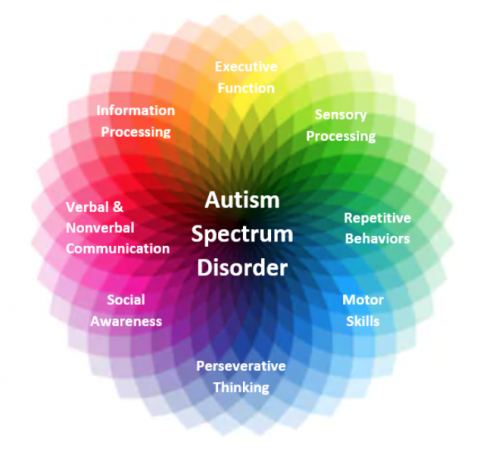
Autism, also known as Autism Spectrum Disorder (ASD), is a complex neurodevelopmental disorder affecting how a person thinks, interacts with others, and experiences the world around them. It is called a “spectrum disorder” because it encompasses a wide range of symptoms, abilities, and challenges that can vary greatly from one individual to another. Autism typically manifests in early childhood, and its severity can range from mild to severe.
Key characteristics and features of autism may include:
- Social Challenges: Individuals with autism often have difficulties with social interaction and communication. They may have trouble understanding and interpreting social cues, making eye contact, and forming relationships.
- Repetitive Behaviors: Many individuals with autism engage in repetitive behaviors or activities, such as hand-flapping, rocking, or repeating certain phrases or words. These behaviors can provide comfort and routine in their lives.
- Sensory Sensitivities: Sensory sensitivities are common in autism. People with autism may be hypersensitive or hyposensitive to sensory stimuli like light, sound, touch, taste, or smell. Certain sensory experiences can be overwhelming or uncomfortable.
- Communication Challenges: Language development varies among individuals with autism. Some may have delayed speech or struggle with expressive and receptive language skills. Others may have strong verbal abilities but still have difficulty with pragmatic communication (using language in social contexts).
- Special Interests: Many individuals with autism have intense interests in specific topics, objects, or activities. These interests can be a source of focus and expertise.
- Difficulty with Change: Routine and predictability are important for many individuals with autism. They may become upset or anxious when routines are disrupted or when faced with unexpected changes.
It’s essential to remember that every person with autism is unique, and their experiences and challenges may differ. Early intervention and individualized support can help individuals with autism develop essential skills and thrive in their own way.
The exact cause of autism is not fully understood, but it is believed to involve a combination of genetic and environmental factors. Autism is a lifelong condition, and there is currently no known cure, but various therapeutic and educational interventions can help individuals with autism improve their quality of life and reach their full potential.




Leave a Reply